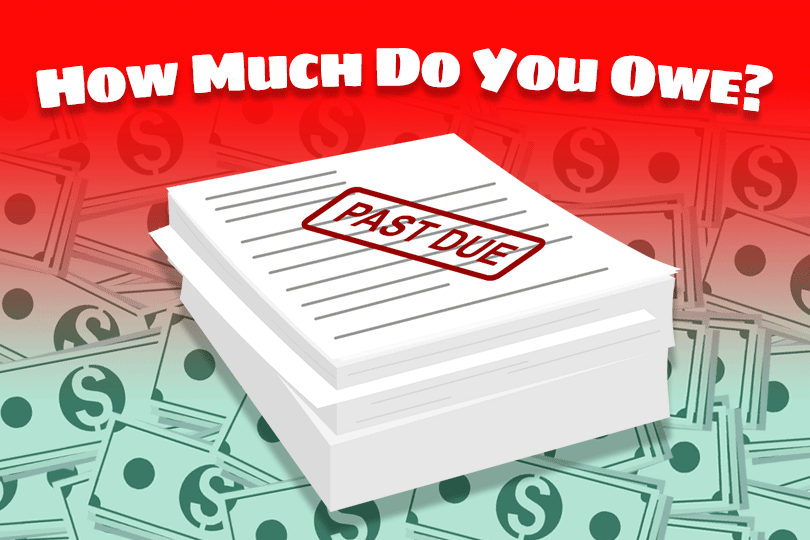How to Get Credit-Ready for a Mortgage
March 29, 2021
The FHA helps first-time and low-income homebuyers by having lower down payment requirements for its borrowers. Additionally, it has a minimum credit score requirement of 580. Despite this lower eligibility criteria, it is important to remember that FHA-approved lenders can set their own requirements, known as “overlays,” for borrowers to qualify.
By working on improving your credit score, you can save yourself the stress of possibly not qualifying for a loan or getting a higher interest rate. Here are a few things you can get started on to help.
Think Ahead
Being proactive with your credit score will benefit you immensely when applying for a mortgage. Improving your credit requires time and patience, and it will not happen overnight. If you know you will be shopping for a house in the next couple of years, start working on your credit NOW. It gives you more time to move your score up to a higher credit threshold, which may help you get a lower interest rate. The more time you have to bump up your scores, the more money you have a chance to save.
You Can Only Fix What You Know
Once you know what your credit score is, you can get to work on improving it. It is easy to get a hold of your scores and go over any issues you may have. Under the Fair Credit Reporting Act, everyone has a right to request their own credit report from a credit bureau to review it. This allows borrowers to dispute any errors by writing to the relevant credit bureau, which must investigate the dispute within 30 days.
Be Punctual with Payments
Payment history is a major consideration for credit bureaus when calculating your credit score. In fact, it makes up 35% of your score, making it the most important factor of your credit. The later you are on your payments, the more it hurts your credit score. If you have recent late payments on your credit reports, it is usually a good idea to let some time pass before you apply for a mortgage. It also reflects well on your credit report when your account status is updated to "paid in full."
Do Not Open New Lines of Credit
If you are in the process of improving on a low credit score, avoid making any new credit applications. When you apply for a new line of credit, lenders perform what is called a “hard inquiry,” which itself can affect your score. While there might not be a hard inquiry made each time, there is a chance it could. Several hard inquiries in a short timeframe sends a red flag to lenders who might assume that you may be mismanaging your finances.
While working on your improving your credit score, it is worth remembering that all lenders will NOT treat your application the same. The home loan interest rates you see listed online or at your local bank are not the same rates offered to every single borrower. Along with other factors, your credit score affects the number your lender offers, and one lender may judge these factors differently than another. It is always best to shop around for mortgages the way you will for your house and get the best deal for you.
------------------------------
RELATED VIDEOS:
Homebuyers Benefit From the Work Done by Fannie Mae
HUD 4000.1 is Sometimes Called the FHA Handbook
Credit History Is Presented as Your FICO Score

FHA Loan Articles
April 23, 2025 While the prospect of lower interest rates or more favorable loan terms can be enticing, there are situations where waiting is the better option. Refinancing without carefully considering your current financial circumstances is never a good idea, but careful planning in the current financial environment is even more important.
April 22, 2025First-time home buyers worry about loan approval, but there are important steps to take to increase the likelihood that the lender will approve their application for the loan or pre-approval. What do you need to know before you choose a lender?
April 16, 2025There are smart uses for cash-out refinancing loan proceeds and uses for that money that may work against the borrower. We examine some of those choices below, starting with using an FHA cash-out refinance for investment purposes. Is this a good idea?
April 15, 2025House hunters sometimes face a curveball when the appraisal for a home they want to buy with an FHA mortgage is lower than the offer. Is this a deal-breaker? Believe it or not, it isn't the end of the road. A low appraisal can sometimes be just a bump in the road. In other cases, you may wish to walk away from the deal. Here's your game plan to navigate this situation...
April 14, 2025 Buying a home with an FHA loan can be an exciting and achievable goal. This quick quiz helps you gauge your understanding of FHA loans and what it takes to make a winning offer on your new dream home. Take a few moments to answer the questions and see how prepared you are to navigate this crucial stage of your home-buying journey.







